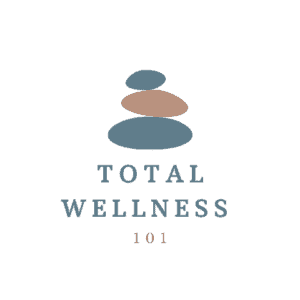I will be the first to admit that I struggle to take breaks. I stress about the time I am “wasting” and would rather be getting something done. Now that I am just finishing a vacation in Mexico, I thought I would look into the importance of taking breaks in everyday life.
Steven Covey in his famous book “The 7 Habits of Highly Effective People”, discusses the habit of “sharpening the saw”. The analogy is that if you are cutting down a tree with a saw, eventually the saw will become dull. This reduces its effectiveness and slows the rate of cutting. You will cut down the tree quicker and with less effort by stopping and sharpening the saw than by continuing to cut with the dull saw.
In life, we often believe the best thing is to just keep working and when we are tired, work harder. It is important to work hard, but there is a point in which it becomes more counterproductive than productive. The best option is to make sure that you practice regular renewal to ensure that your body and mind are prepared to effectively take on the demands of life.
How to Know When You Need a Break
Everyone has different limits when it comes to work and burnout. Some people can handle more than others. You may wonder if you really need a break or if you are doing just fine. Chances are, if you feel like you need a break, you probably do. It’s that simple. You want to make sure you are avoiding a state of burnout. Burnout refers to when you are so overworked that your work and every other aspect of your life is negatively affected. You just want to quit everything.
Another sign of needing a break is emotional instability. Chronic stress can bring about depressive states and a feeling of being overwhelmed. You may find a general lack of interest in things that you normally enjoy. You may snap at your partner or get annoyed or overwhelmed by seemingly small things. When you are overly stressed, you don’t have much patience or energy to handle small, daily stressors that we all deal with. You may have a very negative view about your work or things around you.
When you are overworked you also will feel very physically tired and restless even when you feel like you should have gotten enough sleep. You will feel tired and lack energy, yet you may still struggle to fall asleep at night because your thoughts are racing.
You can also have behavioral changes such as changed eating habits, withdrawal from friends and family, or use unhealthy coping mechanisms such as alcohol or drugs.
Regardless of whether or not you feel like this, breaks are still an important preventative measure. You don’t want to wait until you are sick to get better. Frequent breaks and vacations give you the means to deal with stressful situations as they arise and protect you from burnout.
What a Break Can Do for You
Just like in the saw analogy, breaks allow you to come back to work and your life stronger and more productive. Replenishing your energy and stress tolerance will improve your work productivity, relationships, and overall mood. You will also find physical benefits such as more restorative sleep, lower blood pressure, and an improved immune system.
A 2012 study also revealed that when your brain is taking a break, it is not just in a blank non-productive state. Functional MRI data showed a different default mode of neural processing that occurs in rest states when there is less focus on the external environment. This rest state is necessary for internal processing of memories, emotions, and planning for the future. In other words, your brain uses breaks to better understand what has happened in the past and to analyze information. The idea that taking a break is equivalent to doing nothing, is simply false.
Types of Breaks
Each individual has to find what kind of break is most effective for them. For some, sitting at home may be boring or stressful. They may want more of an escape outside of their normal environment. Others may feel safe and relaxed just in their room and more stressed planning an extensive vacation in a hotel somewhere. You want to find something that reduces your stress and helps you feel rejuvenated and ready for the future. Here are some ideas:
Short Breaks:
These are great for during the workday or when you are just feeling overwhelmed. A break doesn’t have to be a week-long vacation. A break can be 1-5 minutes as well. Mindfulness is a great tool for this. You can learn how to do mindfulness meditation here. Download an app to help or focus on your breathing and just be present. You could also just play some music or sit in a quiet room for a few minutes. Taking a short pause can be very effective in helping you get through the day.
Formal Vacations:
It may be a good idea depending on your personality and situation, to take a formal vacation a few times a year. This could be a long weekend or maybe a few weeks. Try to go somewhere different and enjoy a new scene. It could be a different state, country, or just a hotel in a nearby town. Getting away from the things that generate stress in your life may offer an escape and allow you to breathe and see things from the outside in. Then, you can come back stronger and with a better perspective. These also create lifelong memories and something to look forward to during hard times.
Active Breaks:
These breaks involve using your body. What you do will depend on what you enjoy doing. It needs to be enjoyable, require focus, but not be too mentally demanding. Some examples could be taking a walk, fishing, running, organizing the house, or playing a sport. Active breaks are great because it still gives you something simple to focus on and ties in your body so that your mind doesn’t think about other stressors. You also receive the obvious physical benefits of movement such as endorphins releasing which increase happiness and reduce stress.
Creative Breaks:
If you enjoy more creative tasks, a creative break may be a great option. This could be drawing, appreciating music, playing an instrument, reading, writing, or just creating something. If you’re lucky, you could find yourself in a state of flow, where you are happily absorbed in what you are doing. There is something about creation and artistic expression that just calms and rejuvenates the mind, while increasing feelings of well-being.
Keep the Saw Sharp!
Whatever you do, make it a habit to practice self-care and not push your body and mind beyond its capacities. Everyone needs a break. It is not a sign of weakness, but a sign of self-awareness. A burnt out employee won’t perform well. An athlete that trains and trains but never rests will not perform at the highest level. Catabolism needs to be paired with anabolism or results won’t come. Rest and regrowth are crucial components for both your mind and body. Don’t lose sight of what is really important and always keep your saw sharp.
Recent Posts
In the pursuit of professional success, the modern working professional often finds solace in a cup of coffee or energy drink. Caffeine, the world's most widely consumed psychoactive substance, has...
Strategies for Sales Professionals to Reduce Back Pain and Injuries
In the fast-paced world of sales, professionals often find themselves navigating through long hours, client meetings, and constant travel. Amidst the pursuit of closing deals and meeting targets, the...

